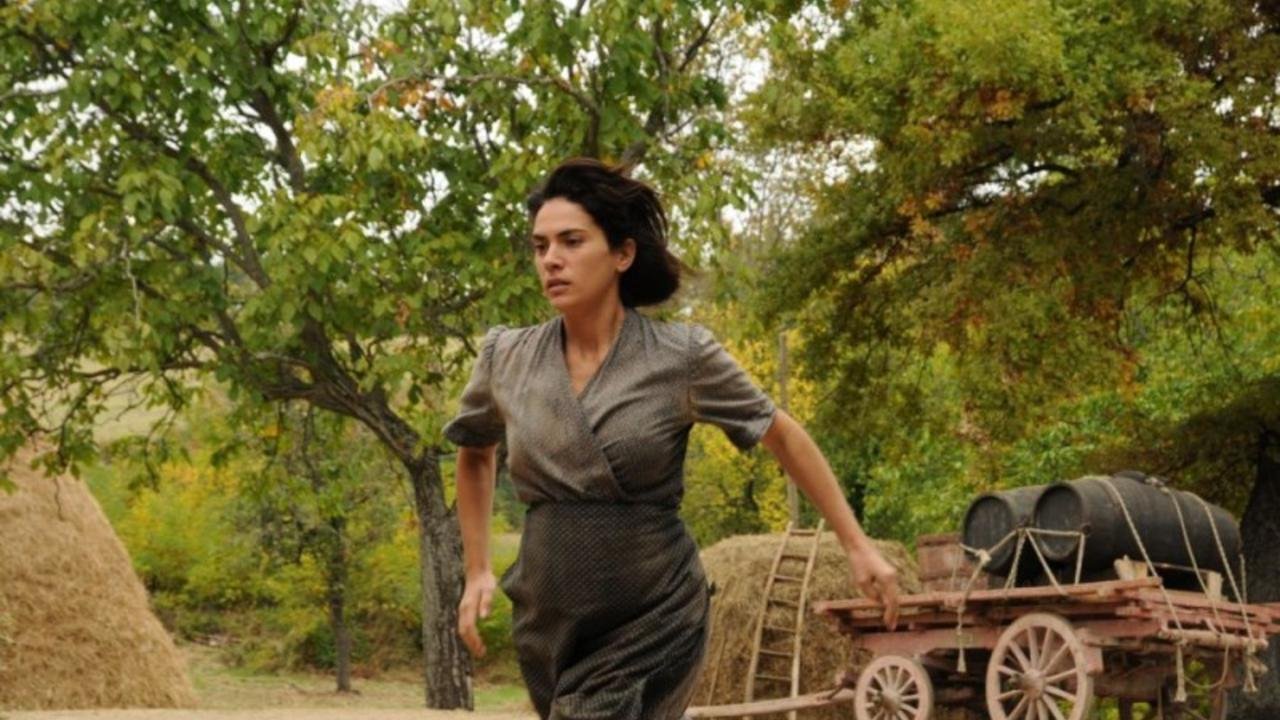Cinema Italiano! II
June: Cinema Italiano! II, FLMTQ Releases 312-319
During the month of June Filmatique presents Cinema Italiano! II, a collection of works from some of the most exciting filmmakers working in Italian cinema.
Edoardo De Angelis's Indivisible offers a heartfelt coming-of-age portrait of conjoined twin girls in Naples, while Marco Bellocchio's Dormant Beauty weighs the issue of assisted suicide vis-à-vis a senator, his daughter, and a famous actress with an adult child in a vegetative state.
Paolo Virzì's The First Beautiful Thing is a gentle portrait of a middle-aged son healing his relationship with his ailing mother; Eugène Green's La Sapienza examines the restorative power of symmetry and beauty as a Swiss architect travels to Italy to complete an unfinished book on Borromini. Two films by Abel Ferrara take place in Rome—Tommaso offers a semi-autobiographical portrait of an American expat forging a clean life with his wife and young daughter, while Pasolini encounters the gay communist icon in his final days as a man of warring desires and profound intellect.
Marco Tullio Giordana's Piazza Fontana dramatizes the investigation initiated in the wake of the still-unsolved 1969 bombing in Milan; Giorgio Diritti's The Man Who Will Come portrays one of the most tragic Nazi reprisals against partisans during Germany’s occupation of Italy in the Second World War.
Featuring works from celebrated auteurs alongside first and second films from new directors, Filmatique's Cinema Italiano! II collection offers a diverse panorama of contemporary Italian film.
//
Indivisible, Edoardo De Angelis (2016)
Indivisible, Edoardo De Angelis / Italy, 2016
Daisy and Viola are conjoined twins. Sharing an apartment with their parents in a run-down neighborhood of Naples, they have spent their childhood singing at weddings and parties, where audiences are as transfixed by their condition as they are the dulcet tones of their voices. At one such performance, a doctor informs them that surgical separation is possible. With different visions for the future, but a deep, shared love, Daisy and Viola explore the possibility of living apart.
Imbued with the whimsical energy of youth, Indivisible portrays two sisters coming of age in the rarest of circumstances. Edoardo De Angelis’s third film premiered at Helsinki, Cairo, and Venice, where it won the Pasinetti Award. Indivisible is a New York Times Critic's Pick.
Dormant Beauty, Marco Bellocchio (2012)
Dormant Beauty, Marco Bellocchio / Italy-France, 2012
Eluana Englaro has laid in a hospital bed in Udine for seventeen years. With no hope of emerging from her vegetative state, Eluana’s father would like to remove her feeding tube and allow her to die. As this drama plays out on television screens across the nation, ordinary citizens come to question their beliefs. Uliano Beffardi, a senator, is torn between his personal convictions and his duty to toe the party line, while his daughter, Maria, attends a protest, falling in love with a right-to-die activist. A famous actress whose daughter is also in a coma becomes transfixed with rituals of grief, as her healthy son languishes in her inattention.
Refracting the complex topic of assisted suicide through an entangled web of characters, Dormant Beauty is a topical portrait of family, faith, and the sanctity of life in contemporary Italy. Prolific director Marco Bellocchio's film premiered at CPX: PIX, Toronto; Venice, where it won the Marcello Mastroianni Award, and São Paulo, where it won the Critics Award.
The First Beautiful Thing, Paolo Virzì (2010)
The First Beautiful Thing, Paolo Virzì / Italy, 2010
Bruno, a middle-aged teacher, sits stoned out of his mind on a park bench. He's forgotten his own birthday, much to the chagrin of his girlfriend, Sandra, who organized the party. Before he can say no, Bruno's sister Valeria whisks him to a hospice home where their mother is dying. In order to make amends, Bruno will first have to confront the family history that got them here.
Imbued with the pathos and humor of an aging matriarch who, against all odds, managed to raise two children on her own, The First Beautiful Thing is a gentle comedy of life, love, and family. Paolo Virzì's ninth feature premiered at São Paulo, Göteborg, and Salerno, winning Best Film. The First Beautiful Thing was nominated for 18 David di Donatello awards, winning Best Screenplay, Best Actor, and Best Actress, and is a New York Times Critic's Pick.
La Sapienza, Eugène Green (2014)
La Sapienza, Eugène Green / Italy-France, 2014
Alexandre and Aliénor live in Paris, in a state of stagnation—Aliénor feels her husband slipping away from her as he settles into a state of professional and spiritual malaise. The couple escape to Italy when Alexandre becomes inspired by the idea of completing an unfinished book on seventeenth century Roman baroque architect Francesco Borromini. While in the small town of Stresa on Lago Maggiore, they meet Goffredo and Lavinia, a pair of siblings who awaken internal longings in the couple that had long laid dormant.
Embellished with formalistic flourishes and a gentle, elegant tone, La Sapienza heralds the return to a simpler world—of art and architecture, the pillars of modern civilization. Eugène Green's fifth film premiered at Locarno, BFI London, Göteborg, and Seville, where it won Best Film.
Pasolini, Abel Ferrara (2014)
Pasolini, Abel Ferrara / Italy-France-Belgium, 2014
Autumn, 1975. In an apartment in Rome, Pier Paolo Pasolini sits for an interview, unaware that it will be his last. These days he follows similar routines—post-production on his latest film, Salò, or the 120 Days of Sodom; chipping away on an unfinished novel; driving his Alfa Romeo through the streets of the eternal city, searching for companionship. Despite Pasolini’s senselessly violent end on the beach of Ostia, what persists is his acerbic intellect, dualistic ideologies, and tender affection for life.
At once a biopic and tribute from one subversive artist to another, Pasolini parses together historical transcripts with imagined quotidian scenes to offer an intimate glimpse at the iconoclastic intellectual in his final days. Abel Ferrara’s portrait of the legendary Italian auteur premiered at Berlin, Venice, Toronto and San Sebastián. Pasolini is a New York Times Critic's Pick.
Tommaso, Abel Ferrara (2019)
Tommaso, Abel Ferrara / Italy-United Kingdom-United States-Greece, 2019
Tommaso is an American expat living in Rome. His days pass listlessly—taking Italian courses, working on a new script, attending an Alcoholics Anonymous meeting. Once a wild child, Tommaso is living a life of relative domestic tranquility with his wife and young daughter. Or so it seems. At the park one day Tommaso believes he sees his wife flirting with a younger man, an ambiguous event that heralds his unraveling.
Starring Willem Dafoe in a raw rendering of the titular role, Tommaso blends fiction, reality and fantasy to unsettling effect. Prolific filmmaker Abel Ferrara’s penultimate work premiered at Cannes, Karlovy Vary, Jeonju and Lisbon, where it won the Grand Jury Prize. Tommaso is a New York Times Critic's Pick.
Piazza Fontana, Marco Tullio Giordana (2012)
Piazza Fontana, Marco Tullio Giordana / Italy-France, 2012
A bomb shook Milan on December 12, 1969. Exploding at the Banca Nazionale dell'Agricoltura in Piazza Fontana, fourteen were killed with nearly 100 injured, striking fear into the heart of the otherwise stately Italian city. Police Commissioner Luigi Calabresi sets off to identify the culprits, rounding up the usual suspects for interrogation. When non-violent anarchist Giuseppe Pinelli dies after falling from the fourth-floor window of Calabresi's office, the political and media storm surrounding the incident threatens to implode.
Delving into the complex web of suspicion, corruption, and subterfuge characterizing the still-unsolved blast, Piazza Fontana is an ambitious historical thriller. Marco Tullio Giordana's ninth film premiered at Telluride, Bari, and Karlovy Vary, where it won a Special Jury Prize. Piazza Fontana was nominated for sixteen David di Donatello Awards, winning Best Supporting Actor, Best Supporting Actress and Best Visual Effects.
The Man Who Will Come, Giorgio Diritti (2009)









